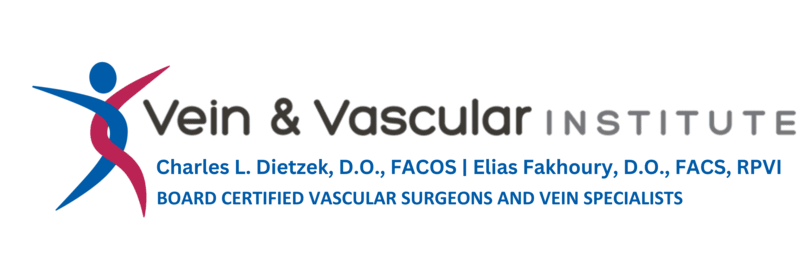Varicose veins are among the most common medical conditions experienced by Americans, with an estimated 40% of all adults being affected. Research suggests that varicose veins have a significant impact on the quality of life of affected individuals. Fortunately, vein treatments are available that are designed to minimize their negative effects and appearance. Here’s what you need to know:
Table of Contents
ToggleCommon Signs and Symptoms of Varicose Veins
Indications that you may be experiencing varicose veins include the following:
- A heavy, aching sensation in the legs
- Cramping, tightness, or itching
- Enlarged/swollen/twisted purple and/or blue veins
- Swollen feet and ankles
Many people report that signs and symptoms worsen as the day wears on.
Risk Factors for Varicose Veins
The vascular system contains two types of veins — deep veins and superficial veins. Superficial veins are those close to the surface of the skin, while deep veins function in the body’s muscular tissues. Because the superficial vein system has less muscle support than the deep vein system, they’re more likely to become varicose.
The chances of developing varicose veins are influenced by a variety of factors. The most common are listed below:
- Genetics — those with a family history of varicose veins are more likely to experience them
- Obesity — excess weight puts extra pressure on the veins, making varicose veins more likely
- Aging — bodily tissues weaken with age
- Pregnancy — the growing baby adds pressure to veins, but the resulting varicose veins are often temporary
- Prolonged sitting or standing — this may cause superficial veins to get backed up
- Leg injuries — veins weakened by former injuries may not be able to move blood as efficiently
- Tobacco use — nicotine causes blood vessels to constrict, restricting optimal blood flow
Although the vast majority of varicose veins aren’t dangerous, they may involve elevated risks of blood clots, skin ulcers, and minor bleeding near the surface of the skin.
Treatments for Venous Issues
Vein procedures vary depending on the factors such as the severity of the condition, the age and overall health of the patient, and whether the condition is causing the patient significant pain or discomfort.
Sclerotherapy
Minor varicose veins and spider veins are usually treated with sclerosing solution injections, which causes the treated vein to fade gradually over a period of weeks or months.
Ultrasound Guided Sclerotherapy
This approach combines traditional sclerotherapy with ultrasound technology for when the physician needs to pinpoint the exact location of the affected portion of the vein.
Microphlebectomy
This procedure treats veins that are too large for sclerotherapy and not large enough for laser ablation.
ClosureFast
An alternative treatment to vein stripping for symptomatic varicose veins, this procedure uses radiofrequency to deliver heat to the affected vein to cause it to close.
Clarivein®
Also known as mechanochemical ablation, this technique is a catheter-based alternative to laser treatment.
VenaSeal™
This non-sclerosant procedure closes the affected veins with a specially formulated medical adhesive
Polidocanol Injectable Foam
The only FDA-approved foam for varicose vein treatment, this technique also uses ultrasound for guidance.
Endovenous Laser Therapy (EVLT)
This minimally invasive laser surgery is a quick and painless alternative to traditional vein stripping.
Veinwave™
This revolutionary European procedure has recently become available in the U.S. for the treatment of telangiectasia and spider veins.
Seek Vein Treatment at Vein & Vascular
Our team at The Vein & Vascular Institute is dedicated to providing residents of New Jersey communities Vineland, Voorhees, Sewell, Lumberton, and surrounding areas with expert vein treatments with a personal touch. Please feel free to contact us at your convenience to schedule a consultation.
